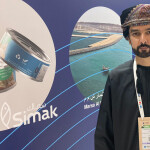As the Brexit deadline of 31 December sits on the horizon, the European Union and United Kingdom’s negotiations of seafood-industry related issues continue to be at a relative stalemate.
While the immediate challenge facing the two sides is to establish agreements on catch shares and allocations, the post-Brexit fisheries negotiations now taking place between the E.U. and United Kingdom must ensure that the seafood sector is able to uphold and improve the standards set in supply chains and also advance consumer confidence, according to Andrew Kuyk of the U.K. Seafood Industry Alliance, a trade body for U.K. seafood processors and traders.
Representing the alliance at the North Atlantic Seafood Forum (NASF) 2020, held in Bergen, Norway, Kuyk said that while U.K. Prime Minister Boris Johnson claims to have gotten Brexit done, there’s still a long way to go in the process, with a new future relationship still to be agreed.
With lots of protracted haggling to come, as well as the wider issue of market access, fisheries will be “a very public, very acute early test of whether it will be possible to reconcile what currently looks like really impossibly divergent positions,” said Kuyk, who is also vice-president of the European Fish Processors Association (AICPE).
Although fisheries are relatively small in economic terms, from a political perspective it has taken center stage in the overall negotiation process, with talks alternating between London and Brussels every two to three weeks. According to the political declaration, the U.K. and the E.U. are now legally committed to using their best endeavors to conclude and ratify a new fisheries agreement by 1 July, 2020, including access to waters and quota shares.
But there is some distance between their respective starting positions, Kuyk said.
He explained that the E.U. is insistent that fisheries, particularly in terms of access to waters and the resources they contain, must be part of any future free trade agreement, while the United Kingdom wants access to fisheries and access to trade to be separate issues. Essentially, the EU27 wants to stay as close as it can to current arrangements, whereas the U.K. government’s public position is based on “taking back control” of its waters as a sovereign coastal state.
“They are set up as rival camps with a whole lot of red lines on both sides,” Kuyk said. “They are opening these negotiations in a very confrontational way and not with a shared view of reaching an amicable, cooperative solution.”
The starting positions of both sides of the negotiations, Kuyk said, make it inevitable that those negotiations will go nowhere.
“Just as Boris Johnson has increased the rhetoric on his side, the E.U. has always said that it views fisheries as part of a ‘totality of agreements’ and that too has become more explicit in the last few weeks to the point that it is now saying that if there’s no fisheries agreement, then there will be no wider trade agreement at all,” Kuyk said. “Making fisheries a condition of the whole new economic partnership is a very bold statement to make because it really raises the stakes in the game, and it makes it much harder for both sides to find an easy way [out].”
But whatever happens on the political front, it’s access to actual markets that matter most in the long-term, Kuyt told NASF delegates.
“One of the flaws of the original E.U. Common Fisheries Policy was that it was effectively a resource allocation policy and not a conservation policy. Responsibly sustainable fisheries are a vital source of high-quality, low-carbon impact protein that’s vital to European and global food security,” he said. “And it is absolutely crucial that whatever happens in these fisheries negotiations, that we don’t see a drop in standards, a failure of fisheries management, or a loss of trust, and that we absolutely maintain consumer confidence whatever else happens.”
Kuyk also reminded the conference that the E.U. is by far the largest fish importer in the world and relies on global supply chains to meet nearly three-quarters of its total consumption needs – estimated at 12.4 million metric tons (MT). Giving the example of whitefish, he highlighted that total E.U. catches are only about 500,000 MT, against a market demand of 3 million MT. Indeed, for both the E.U. and the United Kingdom, two-thirds of the fish consumed in these markets is imported. In the case of cod, 90 percent is imported, thanks to supplying countries like Norway and Iceland.
“We are in the business of supplying nutritious, sustainable food to consumers and we mustn’t do anything on the political level that undermines confidence in the way that fisheries are managed, and [also] does not damage the reputation of the products,” he said. “What matters isn’t so much who catches what and where, it’s the supply to the market – it is about maintaining that stability and continuity. And if possible, it’s about keeping the same price or near enough because fish is in competition with many other animal proteins and if the net result of these negotiations is that costs go up as a result of additional friction, that will hurt the competitiveness of fish in the market.”
Kuyk said that even based on the most optimistic assumptions about future stock recovery, the E.U. is going to remain a deficit market, as will the United Kingdom.
“There is a myth in Britain that taking back control of our waters and extending [ownership] to 200 miles will magically transform that. It won’t. Of the most highly consumed species in the U.K. market, whitefish is predominantly imported at the moment, while tuna and most prawn varieties are not available in U.K. waters,” Kuyk said. “So the idea that we will suddenly be completely self-sufficient is just a fiction.”
He also acknowledged that the coronavirus outbreak could potentially provide the scope for seeking an extension to the transition process for either one or two years and that such a request would need to be made by 1 July. However he added that Johnson has “categorically said” that he will absolutely not extend and that the United Kingdom will leave definitively on 31 December whether a new relationship is in place or not.
“It is just now possible that depending on what happens with coronavirus – if it becomes a major disruptor – it could give him a reason for changing his mind on the strict timetable. But the impression he has given is that that hell would have to freeze over first,” Kuyk said. “If we get to the [end of the] year without a new relationship, [Johnson] has said that’s fine, and that we will leave on a no deal – or the ‘newspeak’ in the U.K. is an ‘Australia deal.’ However, Australia doesn’t have a deal with the E.U., so an Australia deal is a no deal, but it sounds so much nicer. That’s where we are.”
The difficulties presented by the complicated negotiations between the U.K. and the E.U. are compounded by the many other negotiations that the U.K. will need to be engaged in at the same time.
“In addition to looking for a new relationship with the E.U., the U.K. is in parallel going to be negotiating with the United States, Japan, Australia, and New Zealand,” Kuyk said. “It has already said that it’s ready and willing to establish a bilateral deal with Norway. I think that should be one of the easier ones because we have a willing seller and a willing buyer. The complication with the Norway story is what that then does to Norway’s relationship with the E.U. and vice-versa.”
The U.K. Seafood Industry Alliance estimates that the U.K. imports total almost 1.3 million MT of seafood, valued at more than GBP 2.6 billion (USD 3.4 billion, EUR 3 billion), and exports 891,000 MT worth over GBP 1.5 billion (USD 2 billion, EUR 1.7 billion). France, The Netherlands, Ireland, and Spain make up four of the United Kingdom’s top five markets, with European markets being traditionally important for small pelagic species, which are often landed abroad by U.K.-flagged vessels. At the same time, France, Spain, and Italy are the main buyers of U.K. shellfish, which is often shipped fresh or live to obtain the highest prices.
Photo courtesy of vchal/Shutterstock







